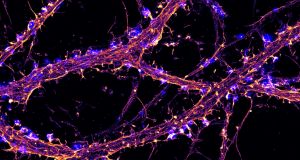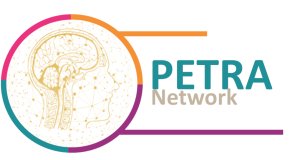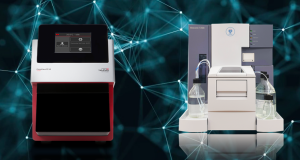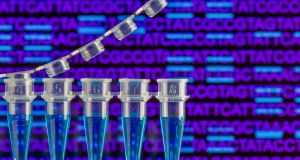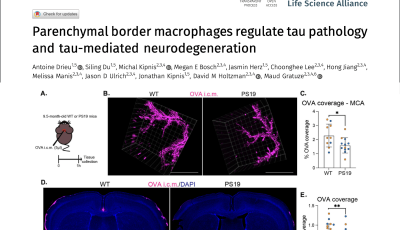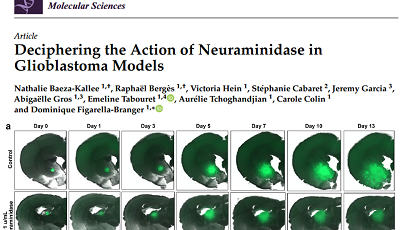Teams
NeuroTimone Facility (PFNT)
The PFNT Facility is a coherent set of exploration tools in neurobiology allowing research at the molecular, cellular and integrated levels.
News
-
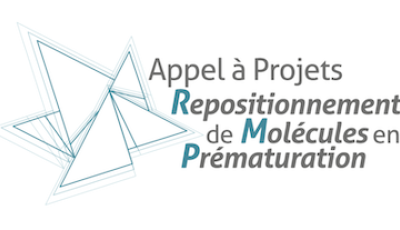 Financement Canceropole : Repositionnement de molécules en prématuration
Financement Canceropole : Repositionnement de molécules en prématurationLe projet « Validation de nouveaux agents ciblant les microtubules et pouvant traverser la barrière hémato-encéphalique pour le traitement du glioblastome » déposé à l’appel « Repositionnement de molécules en prématuration » du Canceropôle Provence Alpes Côte d’Azur par Philipp Tsvetkov (plateforme PINT) a été retenu par le Comité Scientifique du Canceropole PACA pour être financé à hauteur de 30 000 euros. Sont impliquées dans ce projet les équipes 9 et 8 et leurs plateformes associées respectives PINT et
-
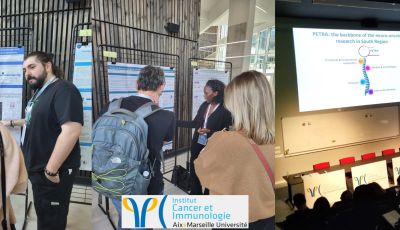 Participation of Team 8 in the ICI Conference
Participation of Team 8 in the ICI ConferencePart of Team 8 was present at the ICI (Institute of Cancer and Immunology) congress on April 6.
On this occasion, Aurélie Tchoghandjian presented the PETRA network and Sokhna Babou (Master 2 student) and Emmanuel Snacel-Fazy (PhD student) discussed their results with the scientific community during the poster session.
-
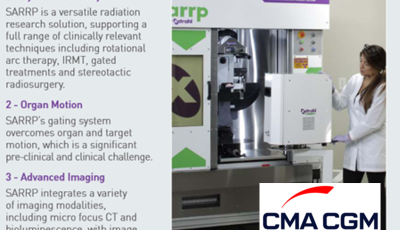 CMA-CGM funding obtained by Team 8
CMA-CGM funding obtained by Team 8Team 8 has recently obtained a CMA-CGM funding in the framework of the call for projects "Programme d'équipement et de recherche clinique" 2022
The project title is "Program of Precision RAdioTherapy to Improve patient Cancer treatment" and aims to participate in the purchase of a small animal irradiator "SARRP" that will complement the pre-clinical offerings of the PETRA network.
-
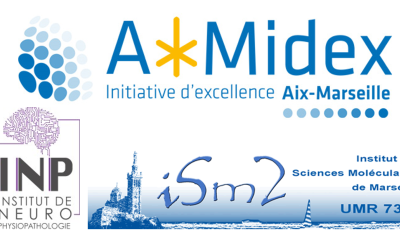 Amidex Blanc funding of a collaborative project between teams 8 and 9
Amidex Blanc funding of a collaborative project between teams 8 and 9Team 9 represented by José Luis and team 8 represented by Aurélie Tchoghandjian have obtained Amidex Blanc funding for the project: "Bioinspired cytotoxic copper complexes: deciphering their mechanism of action in cancer cells to develop efficient therapeutic agents (CytoCu4Cancer)".
This project is led by a chemist, Olga Iranzo of the Institute of Molecular Sciences of Marseille (iSm2).
-
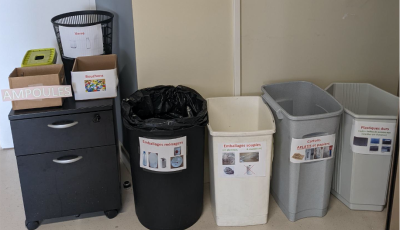 Tous et toutes au recyclage !
Tous et toutes au recyclage !Depuis lundi 3 Avril, l'INP participe à une opération inter-laboratoires de quantification de déchets recyclables professionnels (et ménagers) sur le campus Timone.
Pour cela, chaque aile a été aménagée avec des points de collecte et de tri sélectif. Chaque semaine, les différentes catégories seront pesées puis emmenées au recyclage pour valorisation.Cette opération sur deux mois nous permettra de faire le bilan sur la quantité de déchets recyclables que nous générons et ainsi en faire part à l'université pour qu'elle nous offre des solutions de valorisation de ces déchets.
-
 L'INP participe à la 2ème édition de la semaine du Cerveau
L'INP participe à la 2ème édition de la semaine du CerveauComme chaque année les membres de l'INP participent à la semaine du cerveau. Parmi les actions de cette année on peut citer l'intervention de Cynthia et Charbel deux doctorants de l'équipe 9 qui sont allés rendre visite à l'école primaire du Pharo Catalans
-
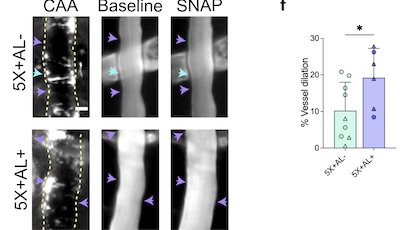 Maud Gratuze, new team leader, first INP publication
Maud Gratuze, new team leader, first INP publicationIn collaboration with the Holtzman lab., Maud Gratuze, with her colleagues Monica Xiong and Chao Wang, published an article on a project developed during her postdoc in the USA. In this study, entitled "Astrocytic APOE4 removal confers cerebrovascular protection despite increased cerebral amyloid angiopathy" and recently published in Molecular Neurodegeneration, they reduced ApoE4, the strongest genetic risk factor in Alzheimer’s disease, specifically derived from astrocytes in a mouse model of cerebral amyloid angiopathy.
-
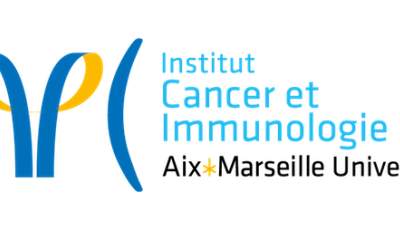 ICI research seminar & master class : Pr Etienne Meylan
ICI research seminar & master class : Pr Etienne MeylanINP and C2VN are organizing the next seminar in the framework of the seminar series of the Institute of Cancer and Immunology (ICI). This day will take place on Tuesday March 7th, 2023 on the Timone campus (Faculté des Sciences Médicales et Paramédicales, amphi 4). We will have the pleasure to welcome Pr Etienne Meylan (PhD, Belgium) who will be giving a seminar entitled "Tumor-associated neutrophils in the immunotherapy era". His research work focuses on neutrophils and lung cancer.
Pages
INP in numbers
- 126 members
- 44 researchers
- 48 research assistants
- 12 post-docs
- 11 PhD
Team 8: Victoria Hein
Team 7, Guest seminar: Lukas Kapitein
Team 8: Emmanuel Snacel-Fazy
Paper out! New publication from the SynapTau Team (Team 2')
The SynapTau team is thrilled to announce the publication of our collaborative work. This has been an incredible partnership, and we are delighted to share our findings in the journal Life Science Alliance! In this paper, we demonstrated that parenchymal border macrophages (PBMs) function impedes tau pathology and tau-mediated neurodegeneration, while tau pathology promotes PBM dysfunction associated with impaired CSF flow. Our results identify PBMs as novel cellular regulators of tau pathology and tau-mediated neurodegeneration.
Just out! New publication from the GlioME Team (Team 8)
The GlioME Team has new publication out in International Journal of Molecular Sciences as part of the Special Issue « Emerging Therapies for Glioblastoma ». This article deals with one of the team’s key issues, the gangliosides recognized by the A2B5 antibody and used as biomarker of cancer stem cells (CSC) in glioblastoma human brain tumours.















